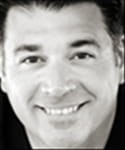How to Read 200 Books a Year (2023)
- Published Jul 12, 2023
Want conviction? Try the title of this article: “In the time you spend on social media each year you could read 200 books.”
Ouch.
But is it true?
Yes, I believe for most people, it is. Here’s the four-step process:
1. Do not quit before you start.
Many will see “200 books” and immediately think, “I can’t!” or, “It’s just not possible.” All that does is guarantee that (for you) you won’t, and that it’s impossible.
2. Do the math.
As author Charles Chu notes, the average American reads 200-400 words per minute. The typical non-fiction book has 50,000 words.
Here’s the math: 200 books at 50,000 words per book equals 10 million words. Ten million words at 400 words per minute equals 25,000 minutes. 25,000 minutes equals 417 hours.
I know, you’re thinking: “417 hours?! No one has that kind of time.”
Which just means you’re now ready for the third step.
3. Find the time.
It was the famed business author Jim Collins who first challenged me about finding time for what matters most. He said that most of us don’t need more “to do” lists, but rather “stop doing” lists. That a lack of time does not war against something like reading, but rather that we are filling our time with things other than reading.
Now to Chu’s point. The average American spends 609 hours a year on social media and 1,642 hours watching TV. Once again, let’s do the math. That’s 2,250 hours a year combined. If you took all of those hours and instead spent them reading, you wouldn’t read 200 books a year. You would read more than 1,000 books a year.
So we have the time. Lots of it. In excess.
So why don’t we read more?
We don’t take the fourth step.
4. Execute.
In my book A Mind for God, I have an entire section on how to read more. It includes practical steps like turning off the TV or shutting down your phone. It involves carrying reading material with you wherever you go so that you can take advantage of empty pockets of time in waiting rooms or lines. It means putting books around your home and office so that they are always there, reminding you and encouraging you to pick up and read.
And perhaps most of all, it means setting aside a particular time – ideally when you are mentally fresh – to read a certain amount every day. And it matters on so many fronts. As Chu writes, “Books gave me role models and heroes and meaning in a world where I had none.” Or as I wrote in A Mind for God:
From reading alone could I gain a sense of the currents shaping the world; from reading alone could I understand the prevailing worldviews from which Christianity was being assailed; from reading alone could I place myself in the vanguard of taking the Word of God to the word of the world. For it would be reading that would fill my mind with virtually limitless knowledge, instruction and insight. It would be reading that would exercise my mind and force it to break through barriers of stagnancy.
Little wonder that a monk in Normandy penned these words in 1170: “A monastery without a library [sine armario] is like a castle without an armory [sine armamentario]. Our library is our armory.” This was certainly the conviction of the apostle Paul who, even from his prison cell in Rome, implored Timothy to be sure to bring him his books (see 2 Timothy 4:13).
So, 200 books a year? You don’t have to give up social media and TV altogether. Just take one hour out of every four you’re spending on them,
… and read.
James Emery White
Sources
Charles Chu, “In the Time You Spend on Social Media Each Year, You Could Read 200 Books,” Quartz, January 29, 2017, read online.
James Emery White, A Mind for God, order from Amazon.
Editor’s Note
This blog was originally posted in 2017. The Church & Culture Team thought that you would enjoy reading it again.
About the Author
James Emery White is the founding and senior pastor of Mecklenburg Community Church in Charlotte, NC, and a former professor of theology and culture at Gordon-Conwell Theological Seminary, where he also served as their fourth president. His latest book, Hybrid Church: Rethinking the Church for a Post-Christian Digital Age, is now available on Amazon or from your favorite bookseller. To enjoy a free subscription to the Church & Culture blog, visit churchandculture.org where you can view past blogs in our archive, read the latest church and culture news from around the world, and listen to the Church & Culture Podcast. Follow Dr. White on Twitter, Facebook and Instagram at @JamesEmeryWhite.
The views expressed in this commentary do not necessarily reflect those of CrosswalkHeadlines.
James Emery White is the founding and senior pastor of Mecklenburg Community Church in Charlotte, NC, and a former professor of theology and culture at Gordon-Conwell Theological Seminary, where he also served as their fourth president. His latest book, Hybrid Church: Rethinking the Church for a Post-Christian Digital Age, is now available on Amazon or from your favorite bookseller. To enjoy a free subscription to the Church & Culture blog, visit churchandculture.org where you can view past blogs in our archive, read the latest church and culture news from around the world, and listen to the Church & Culture Podcast. Follow Dr. White on X, Facebook and Instagram at @JamesEmeryWhite.


















